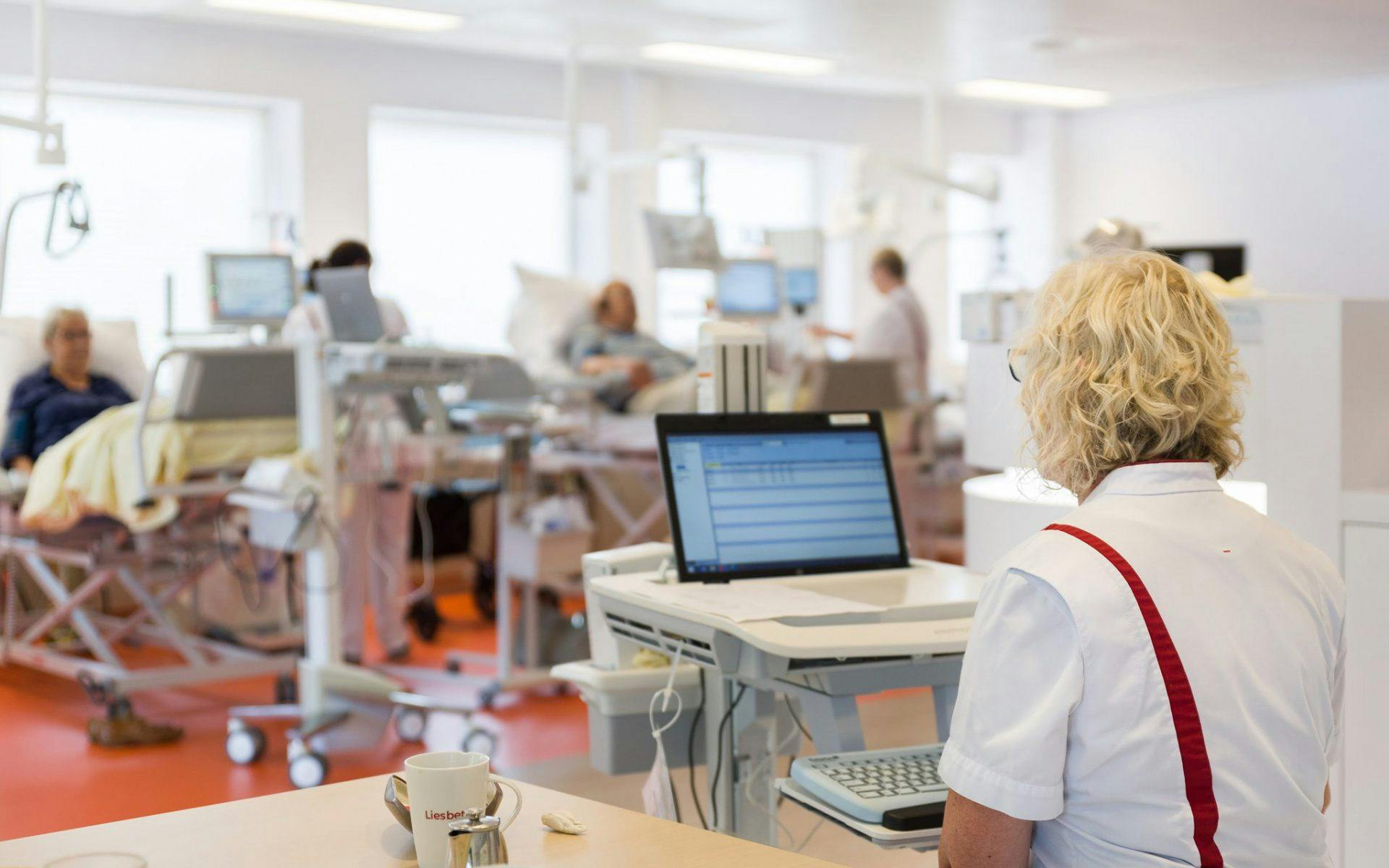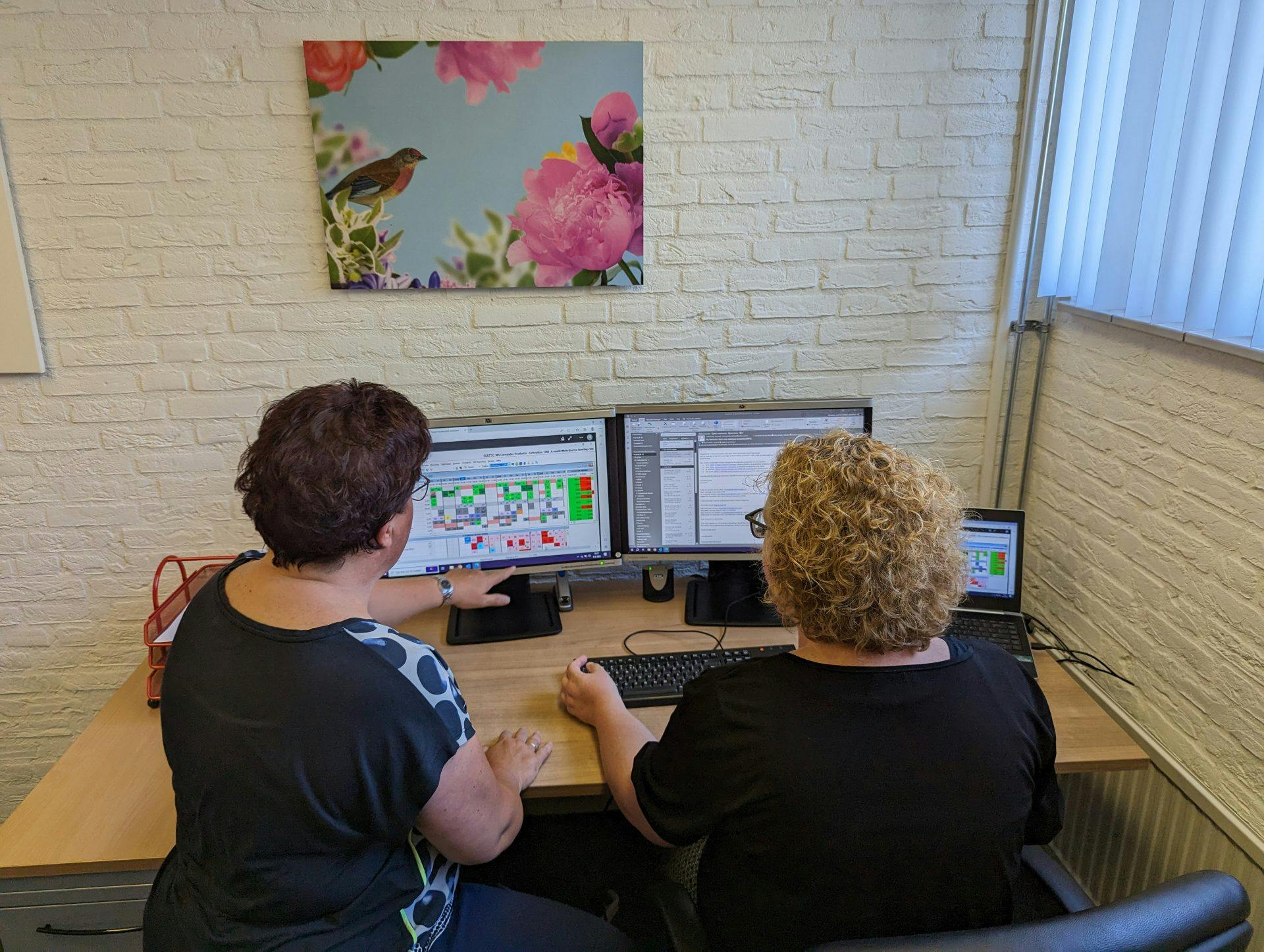Dialyse Centrum Groningen
Read time: 2-3 minutesThe Challenge
Scheduling has always been a hot topic for DCG: employees wanted more control over their hours.
How we create value
Optimizing workforce scheduling, including self-scheduling
Benefits
- More effective use of schedulers
- Employees have more control over their own schedules
- Less shift swapping
- Sustainable employability
Industries
Healthcare

Self-scheduling improves satisfaction and peace of mind
Scheduling has always been a hot topic for DCG and employees had long wanted more control over their hours. As it happened, the healthcare facility was already working with ORTEC Workforce Scheduling, so before rolling out the latest version, ORTEC helped DCG quickly and successfully implement self-scheduling throughout the organization. The result: more sustainable employability, more effective use of schedulers and less shift swapping.
Maike is DCG’s head of HR and is responsible for their scheduling package, as well as serving as the Project Lead for Self-scheduling for the past two years. “The project taskforce consisted of an IT application manager, both schedulers, a team lead, three nurses representing the Work Council, a representative from Finance and the head of Care, as well as myself." Astrid, a dialysis nurse, was part of the team, as was Janneke, who originally joined the company as a dialysis nurse but became one of the two schedulers in 2016. “As far as the scheduling department is concerned, the partnership with ORTEC has always been excellent.”
Changing workforce requirements
The DCG will be celebrating its 25th anniversary next year, Maike says. "Our center can perform all kidney replacement therapies and does a lot of dialysis. Our headquarters are in Groningen and we have three annexes in Assen, Stadskanaal and Scheemda, where patients spend a half day about three times a week. Currently, DCG serves about 175 patients and employs about 160 people, 75% of whom are healthcare professionals. And they’re the people who benefit most from self-scheduling, because they work various shifts six days a week." It makes scheduling quite complicated, Janneke admits. "All employees, including those at the annexes, work night shifts in Groningen, and when someone is ill, a substitute can be sourced from any branched. What’s more, all teams have varying staffing requirements, which can change from one day to the next. Besides, night shifts are not consecutive, which really makes scheduling quite complex."
In control
Maike, DCG’s head of HR, is well aware that scheduling has been a hot topic for DCG for years. “We always scored highly on employee satisfaction surveys, but people were always less satisfied with the schedules.” They wanted to have more control over their working hours. “As it happened, the move to self-scheduling fit in with other efforts to give patients and staff more control. Moreover, we wanted to improve sustainable employability and give our people the feeling that they had a bigger say. The 2019 employee satisfaction survey deliberately featured two questions about scheduling to help set the baseline for our Self-scheduling pilot. That pilot started in the fall of 2019 in Assen and Groningen. "After the pilot, we unanimously decided to roll it out across the organization. Some annexes even approached us to ask when it would be their turn. In the spring of 2020, we evaluated the pilot and implemented self-scheduling throughout the organization."

Tanja Lips, DCG Board of Directors
"We always strive to accommodate for our patients’ personal lives, so why wouldn’t we do the same for our employees."
Peace of mind
Joanna: "During the implementation process, we had help from two ORTEC consultants who had been involved with the technical side of the project and provided self-scheduling training sessions. We made a conscious decision to implement self-scheduling first and switch to the new version of ORTEC WS (7, ed.) later, to avoid making too many changes at the same time. I still think that was a good choice." Since DCG made the switch to ORTEC WS Self-Scheduling, employees are given two rounds to create their own preferred schedule. “It saves us schedulers a lot of time. By the time we enter the process in round 3 to fill up any remaining shifts, the schedule is 80% done. The scheduling process has become a lot more peaceful for us. In the past, people could submit their preferences at the start of the week and we would build the schedule from scratch. Now we have more time to solve urgent matters and staff shortages, and have the peace of mind we need to focus on patient scheduling.”
_________________________________________________________________________________________________
"Nurses and assistants come to the same positive conclusion: we’re overjoyed."
_________________________________________________________________________________________________
Fewer swaps
The new situation has also garnered much praise from the workforce itself. Astrid: “In the past, I used to plan my private life around my shifts. Whenever we tried to plan a day out with the family, I’d always respond: ‘Only if I don’t have work’. I've been in healthcare since I was 18: working weekends and holidays is second nature to me. It’s not a problem, I’m happy to work weekends, but with this new system, I can schedule time off myself or make sure I have the early shift if I want to go out in the evening. We have a much bigger say in our shifts. In the past, we’d be given a roster and that was that. Now, we can take matters into our own hands. Janneke might have said 80%, but almost all the shifts I schedule myself stay as is. It’s great to be able to decide when and where you work yourself.” Joanna: “Jumping in in round 3 gives us schedulers much more peace of mind, because we know that people basically built their own ideal schedule. You’ll never be able to avoid making some changes here and there, but it’s relatively rare.” Maike: “The schedulers did have to get used to staying on the sidelines in rounds 1 and 2.”
_________________________________________________________________________________________________
“ORTEC started working on our request quickly and seriously and provided valuable input”
________________________________________________________________________________________________
Waiting in the wings
Looking back, the people involved in the self-scheduling project conclude that they might have changed some minor details, but that their overall approach would be exactly the same if they had to do it all over again. “We had quite a few spirited discussions in the project taskforce. We tried things that didn't work out and some ideas are still waiting in the wings. The system doesn’t support self-scheduling for night shifts, for instance, but it’s in our plans for next year. In fact, we’ve already told ORTEC. We have loved working with ORTEC: they started working on our request quickly and seriously and provided valuable input. Whenever a question pops up, we can still call the consultants who helped us at first. Our processes and methods are just a little different from what you’ll find at large healthcare facilities, and it’s nice not to have to explain everything all the time.”
